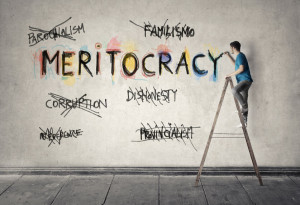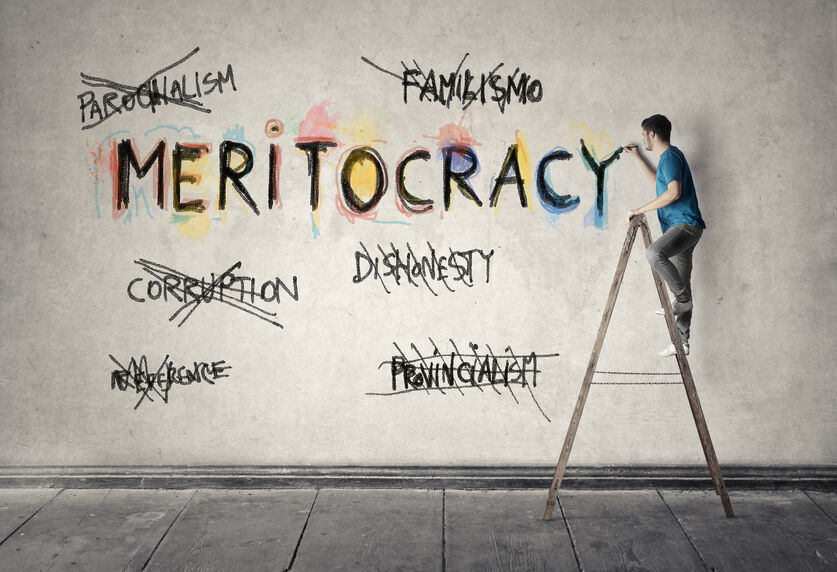 There is a lot of ‘-ocracies’ in the world today. From democracy to autocracy to theocracy and more — the list goes on. But there is one -ocracy that exists outside the realms of politics and religion. It can be used in government, but is more finely tuned for the workplace. And that’s meritocracy.
There is a lot of ‘-ocracies’ in the world today. From democracy to autocracy to theocracy and more — the list goes on. But there is one -ocracy that exists outside the realms of politics and religion. It can be used in government, but is more finely tuned for the workplace. And that’s meritocracy.
In a general sense, meritocracy refers to any form of evaluation based on achievement. Like “utilitarian” and “pragmatic,” the word “meritocratic” has also developed a broader connotation, and is sometimes used to refer to any government run by “a ruling or influential class of educated or able people.” There are similarities here between meritocratic governments and technocratic governments. These types of government are established to root out corruption, nepotism, dishonesty and more. Still, confusion remains. Competing ideas about equality, liberty and fairness have led to a particular kind of conflation of, technocracy, democracy and meritocracy in the present neoliberal climate.
Still, in the business world, leaders who operate on a meritocratic scale focus more on individual achievement, skills and talents than they do on interpersonal connections, equity, and other forms of arbitrary professional evaluations. But what does meritocracy in the workplace look like in practice?
According to an excerpt from research completed by study.com, “for organizations to stay focused and effective, employers unequivocally trust that they have to recruit and retain top talent. To be able to accomplish this, they cultivate meritocracies. This means hiring and promoting the best individuals based on their talents alone.“
Meritocracy in the workplace allows everyone to have the right to express their opinions. Furthermore, they’re encouraged to share them openly and often. The organization then evaluated those opinions based on merit. There is an important distinction here. A meritocracy is not a democracy. Important business decisions are not made by consensus, but instead by an idea’s merit. But that begs the question: Who decides who gets listened to and which ideas are the best?
In some cases, those with the decision power are the ones who have earned the right. They have built a reputation and history of contributing good ideas, going beyond their day jobs, and achieving stellar results. Certainly, this methodology is not without fault or limitation. Like everything in this world, nothing is perfect, but there are specific ways to build a fair meritocracy within your organization.
- Empower your leaders
- Create passionate advocates throughout your organization
- Encourage a culture of open communication
- Don’t shoot down an idea simply because of who it came from
While a meritocracy isn’t perfect and requires lots of commitment and patience, with lots of voices, opinions and data to analyze, many have found that it truly does help organizations stay on the cutting edge and bring the best ideas to light. It also helps keep associates engaged and fosters genuine leadership. Could it be just what your company needs?

